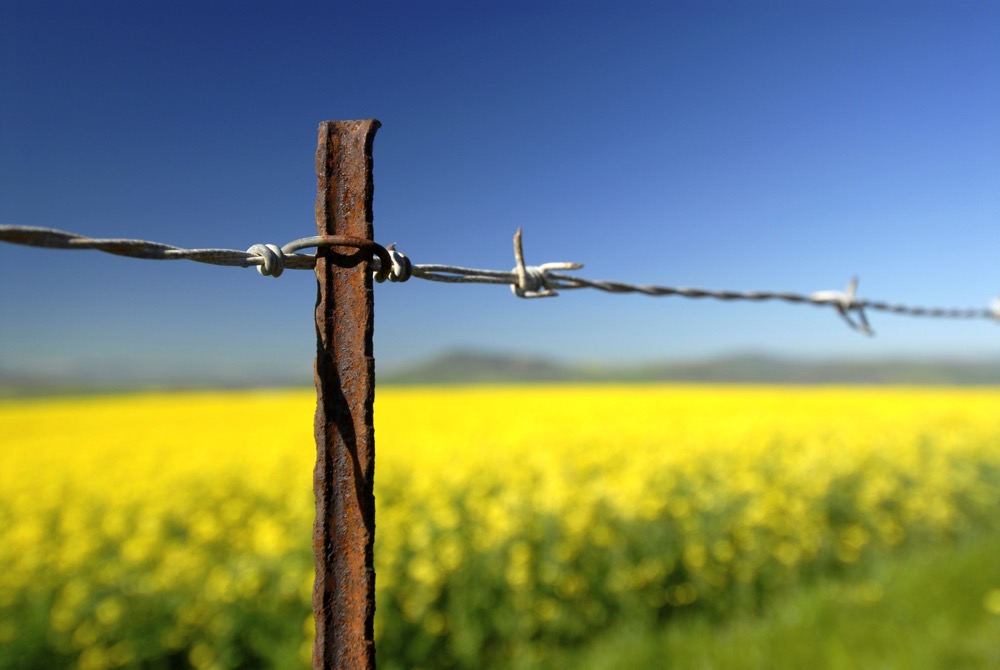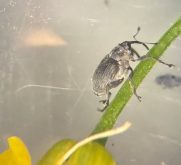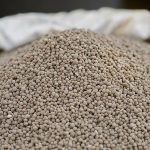China says it banned imported Canadian canola from Richardson International because of pests, but Canadians suspect it’s politics.
China condemns Canada’s decision last fall to detain one of its citizens, Huawei vice-president Meng Wanzhou, at the request of U.S. government on alleged fraud charges and demands she be released.
“Well, that’s obviously one of the issues out there,” Jean-Marc Ruest, Richardson’s senior vice-president of corporate affairs and general counsel, said in an interview March 6, when asked if the ban and the Wanzhou case are related.
Read Also

Flour production slumps in the U.S., increases in Canada
U.S. flour production in 2025 was the lowest in 14 years.
Richardson is Canada’s largest grain company and China is Canada’s largest canola customer, accounting for about 40 per cent of exports worth around $3.6 billion in 2017, a Manitoba government release said.
March 1 a Chinese government website said Richardson’s registration to ship canola had been cancelled. Reuters broke the story March 6.
Canada’s canola industry sees it as a capricious move and deeply concerning not just to Richardson, but Canada’s canola industry and Canadian government. All three say they are working to restore exports.
“Issues with a market that takes 40 per cent of our canola by their nature are significant,” Canola Council of Canada vice-president Brian Innes said in an interview March 8.
“If it’s a quality issue we should be able to resolve it quickly.
“We’re very mindful that the fundamentals of the relationship between Canada and China haven’t changed,” he said, alluding to a council release saying China needs Canada’s canola and Canada has lots of good-quality canola to sell.
“We’re experiencing a hiccup,” Innes added.
China’s actions are a big concern to Canada’s 43,000 canola farmers, Canadian Canola Growers Association CEO Rick White said in an interview here March 6.
“If Richardson can’t buy it (canola) and move it and send it to China, farmers will be left with it here in Canada trying to find different locations to ship it to,” he said. “That could have a significant disruption given that it’s a 4-1/2-million-tonne export country and we rely heavily on that.”
Neither the Canadian government nor canola industry leaders have outright blamed politics, but both say samples of allegedly contaminated canola examined by the Canadian Food Inspection Agency (CFIA) don’t bear out China’s complaint.
“In response to China’s notices on non-compliance, the CFIA conducted further investigations and confirmed it has not identified any pests or bacteria of concern,” Agriculture Minister Marie-Claude Bibeau said in an email March 9. “The CFIA has requested that Customs China provide additional information, including specimens, so that the CFIA can further investigate the alleged detection.”
As of last week the Chinese canola ban only affected Richardson, Bibeau told reporters after speaking to the inaugural Canadian Crops Convention (CCC) here March 7.
“It’s limited to Richardson as far as we know, but we are monitoring the situation to see if it has any impact on the industry in a larger way,” she said.
“I want to assure you that this is a top priority for our government,” Bibeau told the CCC — joint meeting of the Canola Council of Canada and Canada Grains Council. “I am taking this issue very seriously and I have already spoken to my counterparts in Saskatchewan, Manitoba and Alberta and with affected stakeholders. With my department and with the CFIA we are working hard to resolve this issue based on science.”
A day earlier, Foreign Affairs Minister Chrystia Freeland delivered a similar message.

“We’re working closely with Canadian farmers and Canadian industry,” she said in a brief interview. “Our embassy is very focused on this in Beijing right now. We’re talking to our partners right now — other countries. It is a very important issue for us. It’s important to take a bit of time to get all the facts, but I do want your readers and Canadian farmers to rest assured that we take it very seriously.”
China has a history of using phytosanitary claims as a non-tariff trade barrier. In 2016 China complained Canadian canola threatened its domestic rapeseed production because it could contain the fungal disease blackleg. Canada’s canola industry believed it was an effort to slow imports to boost domestic rapeseed prices.
A Chinese government website translated by Google says officials detected Leptosphaeria maculans (blackleg), Pseudomonas syringae pv. Maculicola (bacterial leaf spot), Avena ludoviciana Durien (sterile wild oat), genus of non-Chinese species (Xanthium sp.) (cocklebur), Amaranthus palmeri S. Watson (Palmer amaranth), and other quarantine pests, from imported Canadian rapeseed (canola).
The site says to protect China it will do the following:
- Suspend the canola declaration from Richardson International and its related enterprises after March 1, 2019.
- Strengthen the quarantine of imported Canadian rapeseed (canola), focusing on the inspection and laboratory testing of plant diseases and weeds.
Richardson has exported Canadian canola to China for decades, but never experienced this, Ruest said.
“This has been a culmination of a few months of issues with China where there have been rising complaints with respect to Canadian exports of canola, and not just Richardson but other shippers and issuing notices of non-compliance that from our perspective and the CFIA’s that didn’t measure up,” Ruest said. “From our view there is no basis for them.
“We are very comfortable with the product that we exported. Our test samples quite frankly didn’t show the same things as what they were suggesting were the issues.”
If the problem truly is quality it can be fixed quickly, Ruest added.
“But if it’s not the issue… then obviously it becomes much more complicated to fix and our ability to fix it is very limited by Richardson.”
Richardson is not alone in the effort to resume its exports, Viterra president and CEO Kyle Jeworski told the CCC March 6.
“I am a big believer when you have an issue like we’ve got with China that is an industry issue,” he said. “That’s not a single company issue.
“And you need a strong industry voice to deal with issues like that. Individual companies and governments working alone I think is ineffective. I think it’s important that we the bring the collective strength of our industry together and the collective knowledge of our industry to push to resolve issues like that.”
Canola Council of Canada works on behalf of the entire canola industry “whether or not they are a member or a funder of the council,” council president Jim Everson said later in an interview.
In 2018 Richardson ceased being a major council funder but remains a council member.
Ruest said Richardson welcomes the industry and government support.
“(T)o date we are very pleased with the support we have received from a number of people who have reached out, not the least of which is the federal government… ”
















